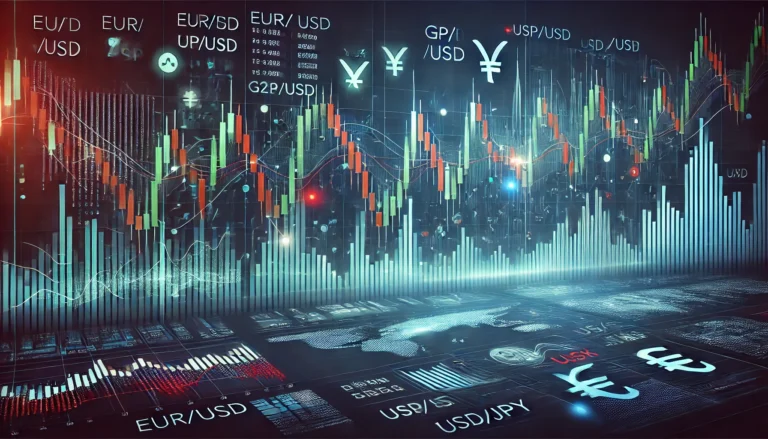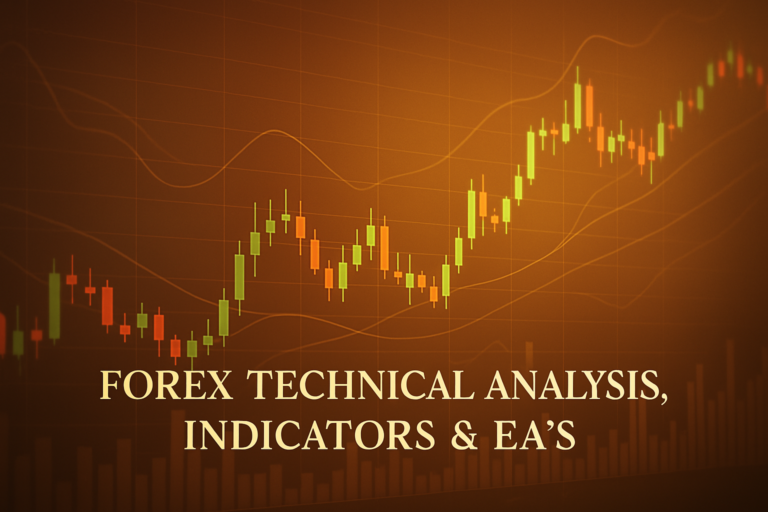
What is equity in forex refers to the real-time value of your trading account, crucial for effective risk management and informed trading decisions.
Have you ever wondered, “What is equity in forex?” It’s a crucial concept in forex trading that every trader, whether a beginner or a professional, should understand. Think of equity as the real-time value of your trading account. It tells you how much money you have available to trade after considering your current open positions. Understanding equity helps traders manage their risk and make better trading decisions.
However, many traders struggle with the concept of equity. They might find themselves confused by fluctuating account balances or unsure how their equity impacts their trading strategies. This confusion can lead to poor decision-making and unnecessary losses. That’s why grasping the essence of equity is vital. It not only helps in trading but also builds confidence in a trader’s strategy and approach.
High commissions can further complicate the understanding of equity in forex. When traders pay high fees, it can significantly reduce their equity. For more insight on this challenge, check out our article on High Commissions.
Understanding What Is Equity in Forex
Equity in forex is the total value of your trading account. To put it simply, equity is calculated as the account balance plus or minus any unrealized profits or losses from open positions. For example, if your account balance is $1,000 and you have an open trade that’s currently losing $200, your equity would be $800. This calculation is crucial as it helps you know how much risk you can take before hitting a margin call.
Equity can change quickly based on market conditions. If the market moves in your favor, it can increase. Conversely, if it moves against you, your equity can decrease rapidly. Imagine you bought a currency pair that suddenly drops in value. If you don’t monitor your equity, you could find yourself in a precarious situation, risking more than you initially planned. Understanding these dynamics is essential for every trader.
Pro’s and Con’s for What Is Equity in Forex
When dealing with equity in forex, you might find advantages and disadvantages. Let’s explore them:
Pros:
- Risk Management: Knowing your equity helps you manage risk effectively. You can avoid over-leveraging and protect your account from significant losses.
- Informed Decisions: Understanding equity allows you to make better trading decisions. You’ll know when to close a position or when to hold on.
- Margin Awareness: A clear grasp of equity helps you understand margin requirements. This understanding prevents margin calls and forced closures of your trades.
Cons:
- Market Volatility: Equity can fluctuate rapidly with market changes. This volatility can create panic and lead to hasty decisions.
- High Commissions: As mentioned earlier, high trading commissions can eat into your equity, affecting your overall profitability.
- Emotional Stress: Monitoring equity closely can lead to stress, especially during unfavorable market conditions.
To mitigate these issues, traders should:
- Use a demo account to practice and understand equity better.
- Set realistic profit targets and stop-loss levels.
- Regularly review and adjust their trading strategies based on equity evaluations.
Understanding the forex market open and close time can also enhance how you manage your equity, as market conditions play a significant role in your trading performance.
Frequently Asked Questions
1. How often does equity change in forex?
Equity can change constantly, depending on market movements and the status of your open positions. For instance, if you hold a position that suddenly increases in value, your equity will rise accordingly. Conversely, if the position loses value, your equity will drop. Keeping a close eye on these changes is vital for managing your risk effectively.
2. Can I trade without understanding equity?
Technically, yes, you can trade without understanding equity. However, it’s strongly discouraged. Trading without this knowledge can lead to poor risk management, increased losses, and overall confusion about your financial situation. Equity serves as a foundation for making informed trading decisions.
3. What is the difference between equity and margin?
Equity is the total value of your trading account, while margin refers to the amount of money you need to open and maintain a leveraged position. Understanding both concepts is essential, as a low equity level can trigger margin calls, forcing you to close positions to meet margin requirements.
4. How can I protect my equity?
To protect your equity, consider using stop-loss orders, limiting your leverage, and diversifying your trades. Additionally, always maintain a solid trading plan that involves setting realistic profit targets and loss limits.
5. What happens if my equity reaches zero?
If your equity reaches zero, your broker may liquidate your open positions to recover their funds. This situation is known as a margin call. To avoid this, always monitor your equity and ensure you have sufficient funds to cover your margin requirements.
6. Is equity the same as my account balance?
No, equity is different from your account balance. Your account balance is the total amount of money in your account, while equity reflects the current value of your account, taking into account any open positions. This distinction is crucial for effective trading.
7. How can I track my equity effectively?
Most trading platforms allow you to track your equity in real-time. Ensure you familiarize yourself with your trading platform’s features, as they provide valuable insights into your account’s performance. Regularly check your equity to stay informed about your financial situation.
Conclusion
In summary, understanding what equity in forex is can significantly enhance your trading skills. By managing your equity wisely, you can avoid common pitfalls and make informed decisions. Remember, this issue can be managed or avoided with proper knowledge and strategies. Stay informed and continuously improve your trading methods.
Don’t let confusion about equity hold you back! Embrace the knowledge, hone your skills, and watch your trading journey flourish.
Recommended Next Steps
Now that you have a better understanding of what equity in forex means, consider these steps to further enhance your trading skills:
- Educate yourself on margin and leverage to understand how they affect equity.
- Practice trading in a demo account to see how equity fluctuates in real-time.
- Join forex trading forums or communities for shared experiences and strategies.
- Regularly review your trading strategies and adjust them based on equity performance.
Curious about real-world applications of this strategy? Dive into Forex.com, International Monetary Fund
Expand Your Knowledge
- 📌 Forex Trading Learning Road Map
- 📌 Forex Trading Course with no Fees
- 📌 Forex Trading Issues, Problems, and Solutions
- 📌 Forex Daily Forecast & Live Updates
- 📌 Forex Fundamental & News Analysis: Tomorrow’s Market Movers & Trade Opportunities
- 📌 Forex Education Hub: Learn & Profit
- 📌 Forex Technical Analysis, Indicators & EA’s
Start Trading Today
Ready to take your forex trading to the next level? Open an account with Exness, one of the most trusted platforms in the industry. 👉 Sign Up Now and trade with confidence!
My recommended broker stands out with ultra-low spreads for beginners, instant withdrawals, and zero spread accounts for pro traders.
Trusted since 2008, lightning-fast execution, no hidden fees, and a secure, transparent trading environment—giving you the edge you need to succeed. 🚀
Watch this helpful video to better understand what is equity in forex:
In the world of forex trading, understanding the concept of margin is crucial for every trader. Margin is essentially a good faith deposit that a broker requires to cover potential losses when a trader uses leverage. Leverage allows traders to control larger positions than their actual capital, which can amplify both profits and losses. Therefore, margin acts as a safety net for brokers, ensuring that traders have enough capital in their accounts to maintain their open positions. It is usually represented as a percentage of the total position size. For example, if a trader deposits $20,000 in their trading account and the broker offers a leverage of 1:25 with a margin requirement of 4%, this means the trader must keep a certain amount in their account to keep their trades active. Understanding how margin works is essential as it influences not only the amount of capital needed to open a position but also the overall risk management strategy a trader should adopt.
To illustrate the concept further, let’s consider a practical example. A trader wanting to buy 2 Lots of EURUSD at a price of 1.2000 would need to calculate the required margin. With a margin requirement of 4%, the trader would need to have $9,600 available in their account to maintain this open position. This calculation is essential for traders to ensure they stay within their means and do not overextend themselves, which can lead to significant losses. Additionally, margin requirements may vary depending on the broker and the specific trading conditions. As we delve deeper into forex trading, we will also explore important concepts such as balance and equity, which are closely tied to margin and leverage. Understanding these components will enhance your trading knowledge and help you make informed decisions in the forex market.
For those interested in learning from the best, exploring the journeys and strategies of the top forex traders can provide invaluable insights. These experienced traders have faced various market conditions and have developed effective techniques to navigate the complexities of forex trading successfully. Their lessons can serve as a guide for both new and seasoned traders looking to refine their trading skills and approach.
YouTube Video Library: Related Videos
Balance vs Equity in Forex Trading
Forex Leverage for Beginners Explained (lot sizes and pips)
What Is Margin? | FXTM Learn Forex in 60 Seconds
14 What Is your Equity? – FXTM Learn Forex in 60 Seconds
Is your profirm having a balance or equity drawdown ? #forex #bestpropfirm
BUY or SELL? – The Last Step to Profitability 💰📈
What Is Margin Level? | FXTM Learn Forex in 60 Seconds
Note: The video above is embedded from YouTube and is the property of its original creator. We do not own or take responsibility for the content or opinions expressed in the video.




